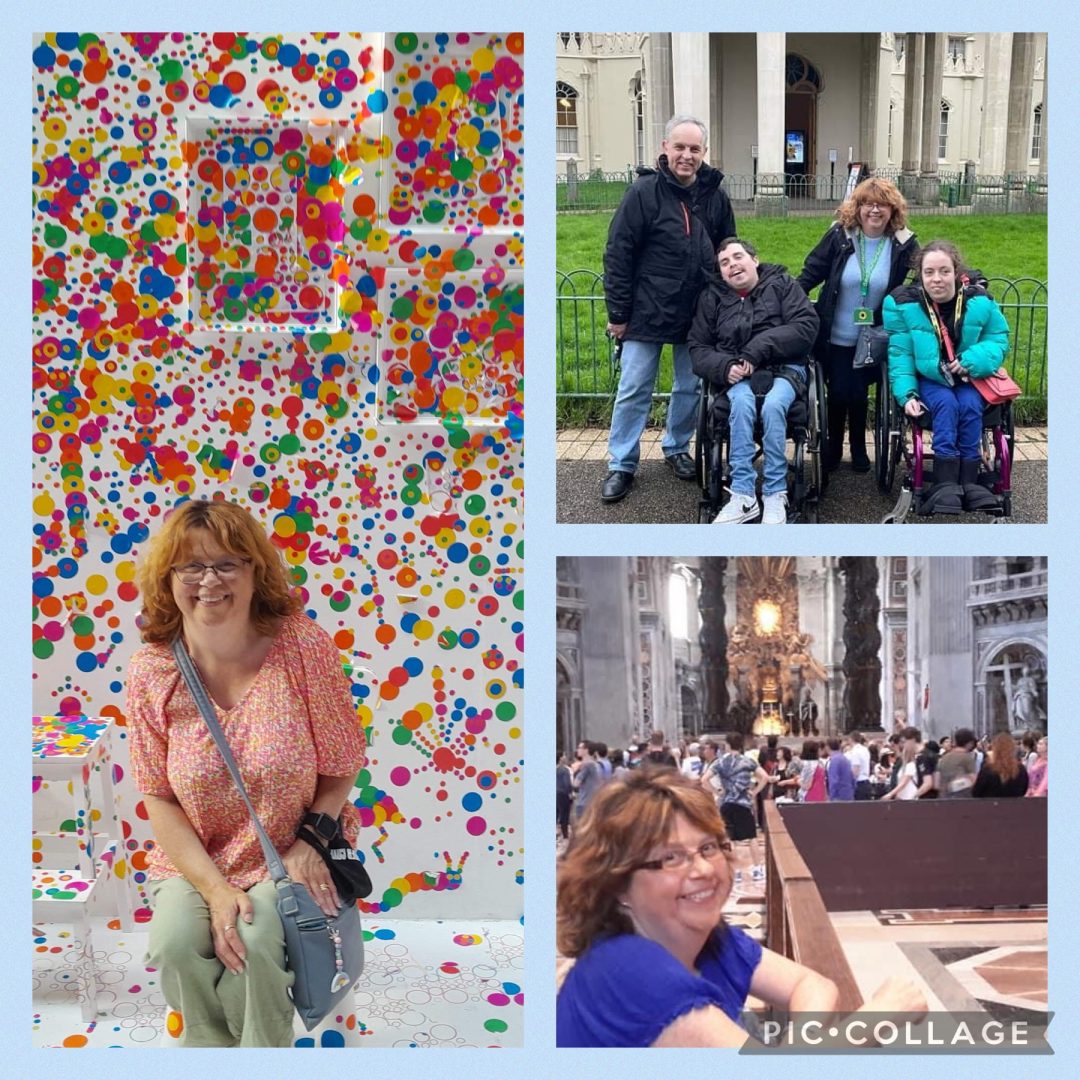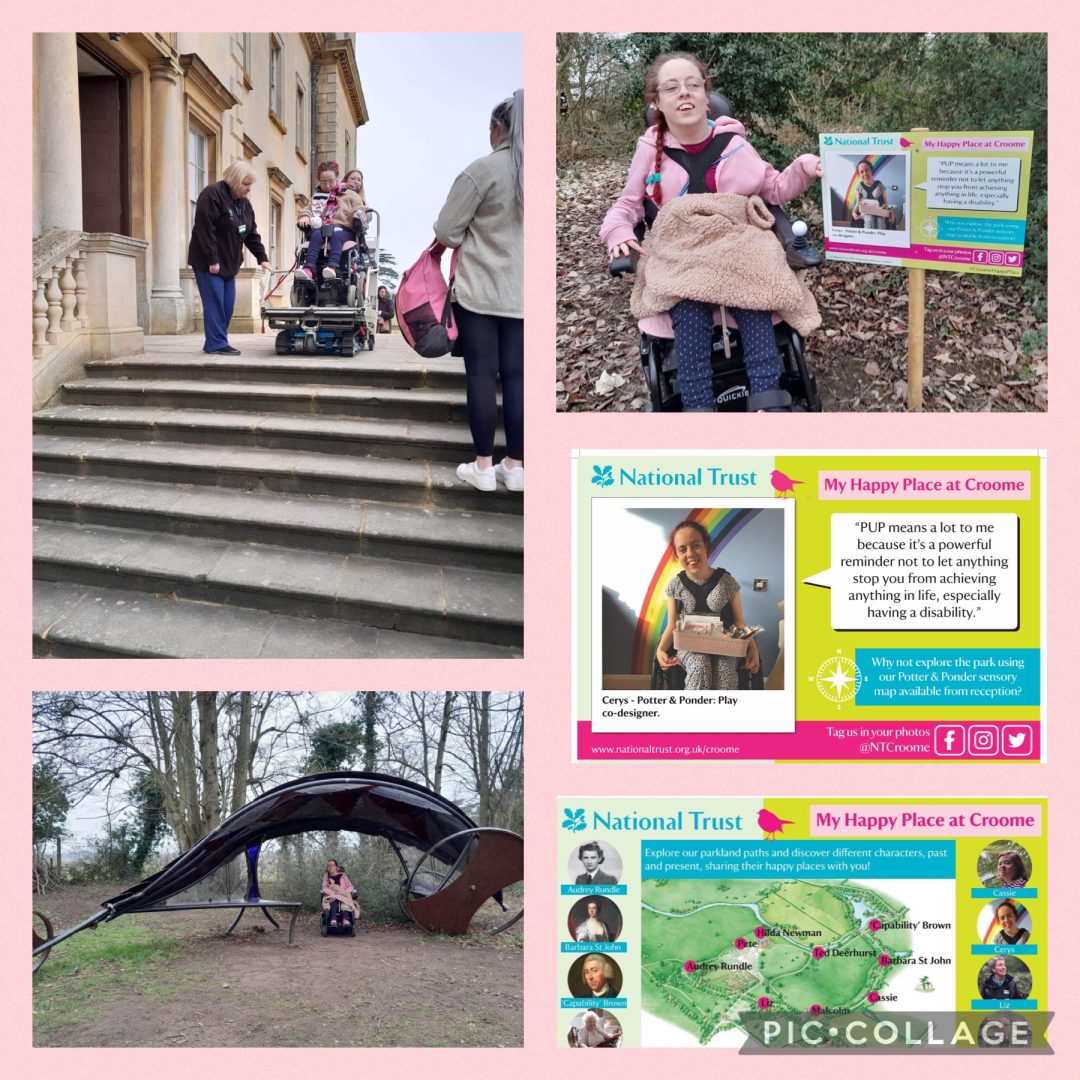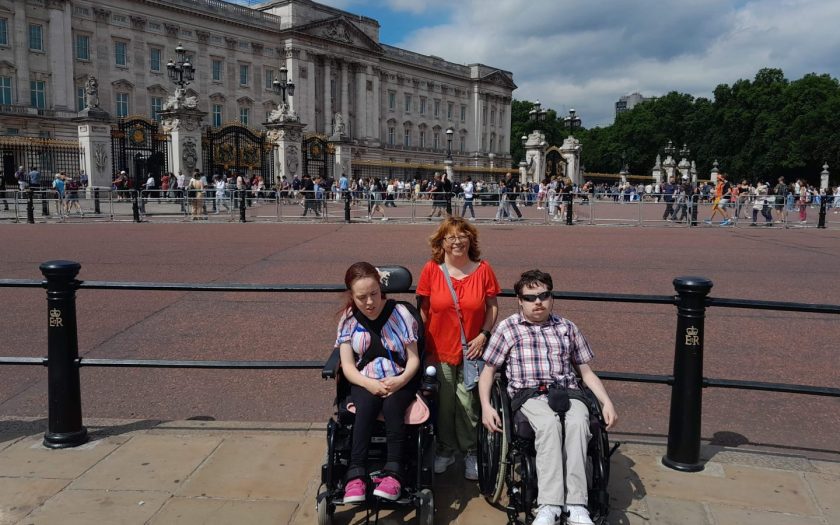Thoughts on Caring by ‘Donna Giles’
This week is Carer’s Week, and many organisations and individuals are working hard to raise awareness of the reality of life as an unpaid carer.
I am a Carer to both of my children who have Cerebral Palsy and are full time wheelchair
users. I am also supporting mine and my husband’s parents as they face the challenges of getting older.

I have gathered so much knowledge, and developed so many skills over the years, and I am unsure when I realised that, not only was I a mother, but that I was also a Carer. Many people, no doubt, feel the same – the realisation creeping up on them, rather than coming in a bolt from the blue.
These are some thoughts I have about being a Carer. They are my individual views, coloured by my experiences, and I recognise that others may have a different view.
1. It is so easy to feel invisible, and that is why it is important to connect with other
Carers, either via one of the big organisations that support unpaid carers or one of
the smaller local organisations. This can be done online or, more and more, face to
face. There are some wonderful people out there who know exactly how it feels to
be in the caring world, and they can offer advice, support, and connection.
It is also important to remember that one type of support might not suit one person,
but it may suit another. We are all individuals, and criticism of services that don’t
meet your needs should be tempered with the recognition that for some people
they do. Standing together to raise our voices is more likely to mean that we, unpaid
carers, will be heard.
2. It can sometimes feel that you are ‘lost’ in your caring role, putting aside all your
own individual ambitions in order to support the person you are caring for. It can
also feel that you are only ever known in relation to the person you are caring for,
and never as an individual. Acknowledging this can be as difficult as acknowledging
you are a carer.
3. I’m not sure the people in power know what to do. It feels as if successive
Governments have continually ignored the difficulties faced by both those using and
those working in social care leading to a situation that is becoming untenable, and
scarily close to breaking point. There will be no ‘quick fix’ to these problems, but
they need to start somewhere, and fast!
4. Caring is not seen as a ‘job’, and yet it is a role that you never get a holiday from and
are always on 24-hour call. The skills and knowledge you need to develop, including
time management, budgeting, negotiating, and problem solving, would put any top
business person to shame. Unpaid Carers save the country millions, and so surely it isn’t too much to ask that some of that money is put back into supporting those
people to carry out, and have respite from, their caring roles.
5. Navigating the social care system is a challenge, and obtaining a Carer’s Assessment
when the person you care for is a child, can be, in my experience, a frustrating
process. There seems to be a view that because they are your children the role is
yours anyway, and the child is not seen as an individual who needs to learn to
become independent just as their peers do. Navigating the system with an adult who
needs extra care brings just as many challenges, but, perhaps, in a different way.

6. In my experience, I could not carry out my caring role without the support of the
paid carers who also assist Nathan and Cerys to be independent, and to live their
lives how they would like to (within reason and budgets!) Our family considers these
wonderful individuals to be part of our wider network, part of a team. Personally, I
feel it is important that I support them as much as they support us. I wish they felt
that when someone asked them what their job was, they felt they could proudly say
“I’m a Carer,” and I wish all ‘the clapping’ could be converted into pay rises.
7. Personally, as a family, we have tried to remain as positive as possible, and have
tried to embrace as many experiences as possible. Caring for Nathan and Cerys has
led to many exciting opportunities, including visits to Parliament and meeting
Royalty. However, I do acknowledge that remaining positive can sometimes be hard,
and that life as a carer is hard work. There are times when life can be dark, and you
just have to hold on waiting for the light to appear.
8. Finally, we are all on different caring journeys and will have different experiences,
but some feelings will be the same – fearing the future, the fight for services, the joy
at the small triumphs and the hope that society will start to recognise the value of
unpaid carers every day, not just for one week of the year.

